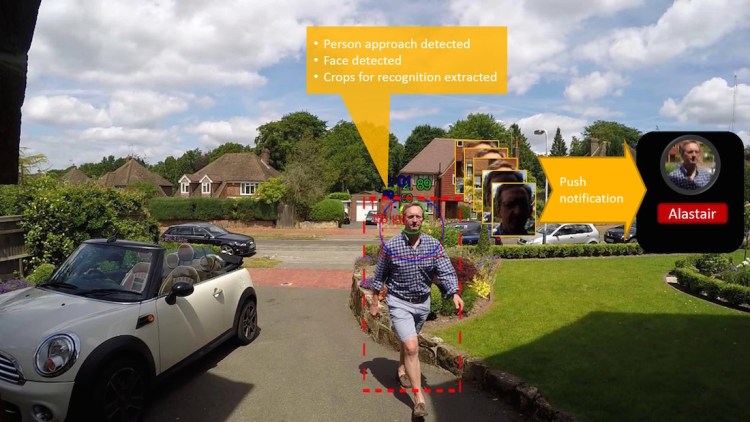If you have a motion-detecting video surveillance system for your home or apartment, you may find yourself annoyed by the wind or cats.
Every time a tree sways or a cat walks into the field of vision, the system might shoot you a notification. But computer vision provider Apical and “vision-as-a-service” vendor Tend are today announcing a new home video service that can be set to ignore cats and only let you know when there’s a human in view.
Called Tend Smart Detection, this is the first product on the market using the U.K.-based Apical’s new Spirit vision detection technology, announced last year. This version of Spirit, called ART, can not only identify when the subject in view is a person, it can also tell whether it is looking at an animal or just an object. And it can capture and record trajectory, pose, and gestures.
It is “removing false alarms by separating people from non-people,” Tend CEO Herman Yau told me, resulting in up to 98 percent fewer false alarms.
Previously, he said, false alarms could be triggered by such events as cars going by, the wind moving tree leaves, or even shadows. A typical house might see 200 such events daily, with resulting notifications.
Now, a filter tells the detection to look only for people — although it can be switched back to notifications based on motion activity, which it still records.
The system can even detect a human riding in a car that is driving by, Apical CEO Michael Tusch said, “if we can see the head or head and shoulders.” It can also be used internally to remotely monitor and immediately send a notification if, say, an elderly person has fallen — hopefully doing away forever with those commercials.
A devious person could disguise their head and shoulders and thus fool the detection system, he acknowledged. But in that scenario you’re either running your video surveillance on Halloween or you have a creepy neighbor.
This is only the first phase, Tusch said. Coming: the ability to identify specific people, so your video surveillance system can tell whether you know the person or not. It will also be able to detect whether an individual looks well, health-wise.
The Fremont, Calif-based Tend offers its cloud-based video storage and notification service for wireless home cameras, through such connected home providers as Belkin, British Telecom, and Singapore Telecom, and it claims over 500,000 consumer users, mostly in the U.S.
Although the Tend service works on a variety of wireless cameras, this initial implementation is designed specifically for Kodak cameras. Eventually, Yau said, ART will be available for all the cameras Tend supports.
Nothing else is needed beyond the camera, the service, and a fast wireless Internet connection. The service is $10 for two weeks of recording and 1000 events, with free livestreaming, plus the price of the wireless cameras. Or you can get the Apical smart detection alone for $3/month, without video storage.
Both companies say there is no other such intelligent visual detection available on the consumer market. There is visual detection in some corporate systems, Yau noted, but “the accuracy is way less.”
VentureBeat's mission is to be a digital town square for technical decision-makers to gain knowledge about transformative enterprise technology and transact. Learn More

